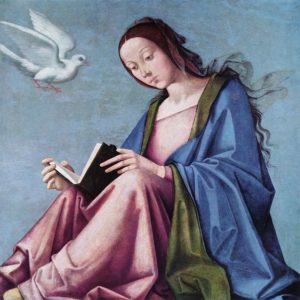Why do Catholics call their Church the “Catholic” Church? Why not just call it the Christian Church? Is the Catholicity of the Church important? Is it Biblical? What does it even mean to say that the Church is “Catholic”?
Tag: faith
Reformation Day Ironies, 500th Anniversary Edition
This year, in commemoration of the 500th anniversary of the Reformation, I’ve decided to do another round of “Reformation Day Ironies.” This year’s theme is “Luther against the Reformation,” looking at the various ways that Martin Luther spoke against the Reformation he helped to spark, including what he had to say on the papacy, teaching authority, and schism.
What About Abortion in Cases of the Life of the Mother?
Do embryos and fetuses count as human “persons”? And why can’t we abort in those cases in which NOT aborting means that both the mother and the baby will die?
Can Catholics Believe in Karma?
Can a Catholic believe in karma?
Did Vatican II Change Church Teaching On the Church?
Chances are, if you’ve done any reading about the Catholic Church’s vision of “the Church,” you’ve probably come across the claim that everything changed at Vatican II. Prior to Vatican II, as the story goes, the Catholic Church thought that only she was “the Church;” after Vatican II, she recognized that the Orthodox and Protestants (and perhaps even non-Christians!) also form part of the Church. But is it true?
Is it Wrong to Pray to Angels?
A Baptist preacher on the radio this morning claimed that the only person in the Bible to encourage praying to angels was Satan, when he tempted our Lord in the wilderness. This claim is wrong, but in a revealing way.
What Does it Mean to Say That Jesus “Became Sin”?
St. Paul in 2 Corinthians 5 has an odd expression, in which he says that God the Father made Christ, who knew no sin, “to be sin.” What on earth does THAT mean?
In Defense of Exaggerated Marian Devotion
Protestants aren’t the only ones who find Catholic devotion to Mary a bit over-the-top sometimes. A lot of Catholics find other Catholics, including great Saints like Alphonsus Liguori and Louis de Montfort, to be a little “much” when talking about the Virgin Mary. I get it. Take the Salve Regina, for example: it calls Mary “Our Life, Our Sweetness, and Our Hope.” How is that kind of effusive flattery theologically defensible? After all, Our Life and our Hope is Jesus Christ.
Is Salvation Our Doing, or God’s?
What percentage of our salvation is our doing, and what percentage of it is God’s doing? This is a common way of approaching the question of salvation, and it’s a driving force for a lot of bad theology. For example, Steven J. Cole claims that Roman Catholicism “teaches that in order to gain enough merit for salvation, we must add our good works to what Christ did on the cross.” That’s a common misunderstanding: since Catholics believe human cooperation is necessary, that must mean we’re reducing God’s credit from 100% to something lower, right? And it’s ultimately for this reason that Martin Luther and later Protestants (most famously Calvinists) will argue that man’s free will in the realm of salvation is basically an illusion: we provide 0% to salvation. Why? To ensure that God gets 100%.
The Virgin Mary’s Unique Role in the Salvation of the World
Whether you’re Catholic or Orthodox or Protestant, you owe a great debt of gratitude to the Virgin Mary, because there’s a special way in which you owe your salvation to her. This claim often sounds heretical, particularly to Protestant ears, so here’s the basic reason Catholics say this…

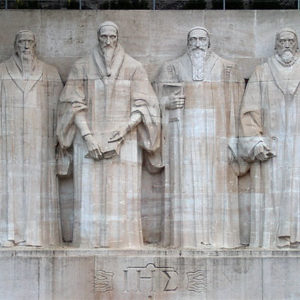

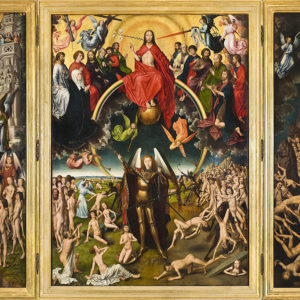

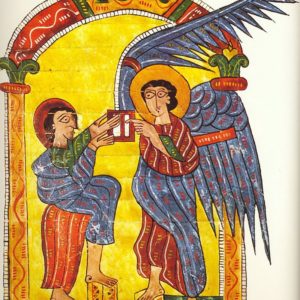
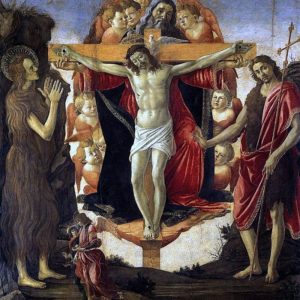
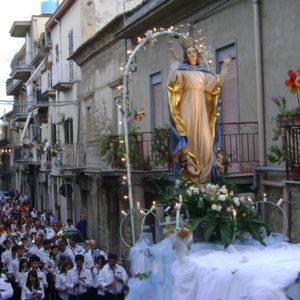
![Michelangelo, Creation of Adam (1512) [from the Sistine Chapel ceiling]](http://shamelesspopery.com/media/2017/09/Adams_Creation_Sistine_Chapel_ceiling_by_Michelangelo_JBU33-300x300.jpg)
